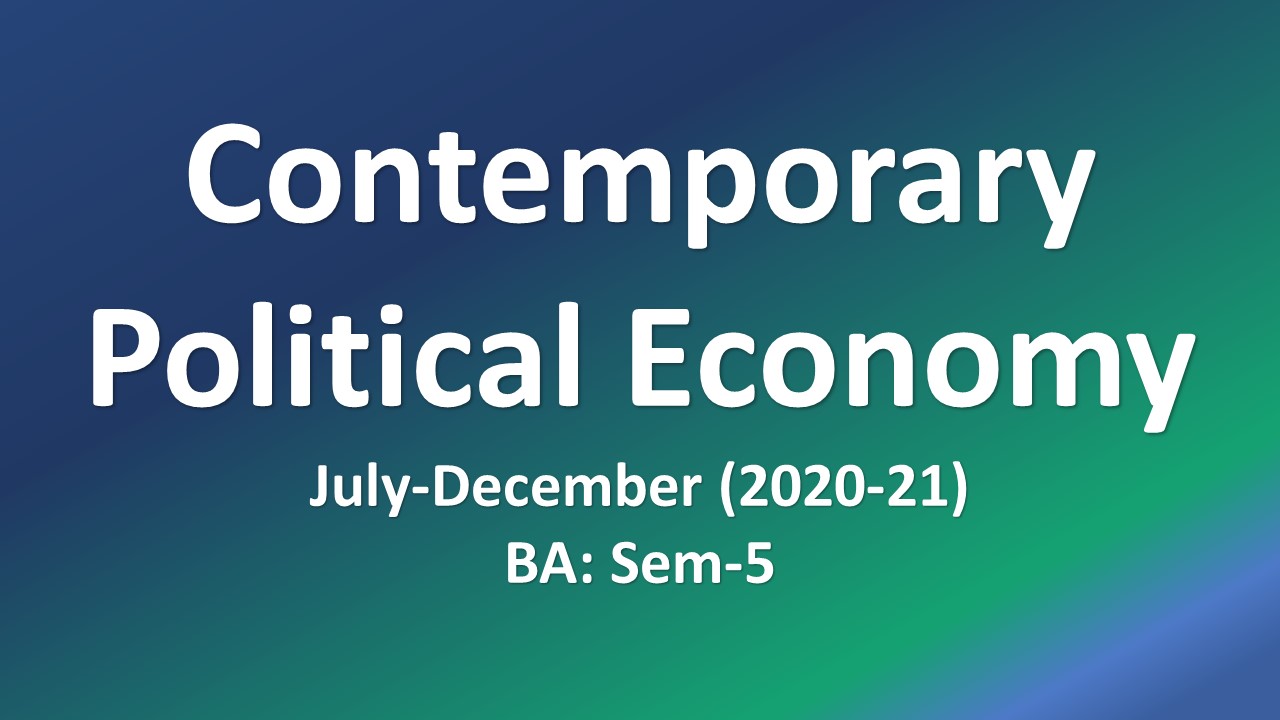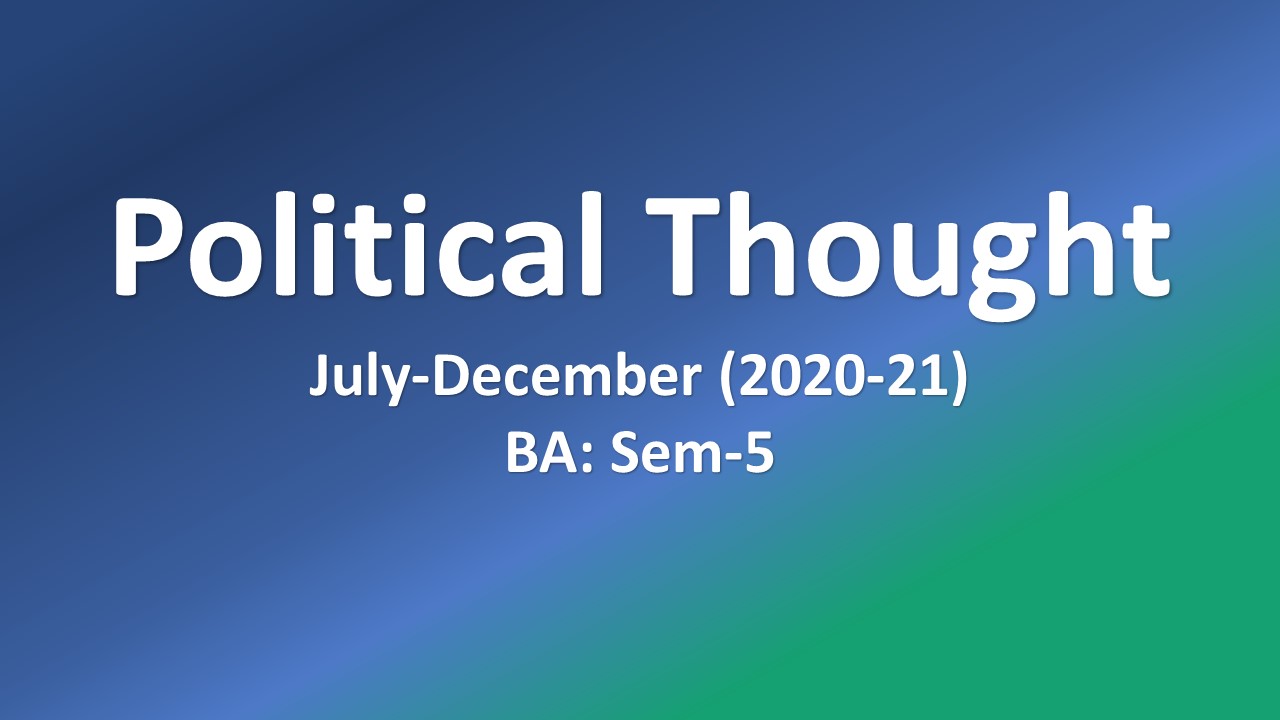Course Objective: This course offers a theoretical overview of the concepts, isms and the cases associated with development communication. The primary aim is to study the thematic linkages between media and development and their functional implications for less developed countries. Navigating through key strategies, issues and barriers, it also allows the study of development paradigms through the usage of media tools. The engagement is on the basis of dialogue and delivery while we explore the topics together through focused lectures, readings, screenings & group discussions.
Course Outcome: By the end of this course, the student should-
1. Acquire in-depth knowledge about the theories and models of development, and the critical concepts of development communication.
2. Evaluate the impact of active media tools on the evolution process of development in developing countries.
3. Reflect upon the works (reportage, research papers, books and documentary films) of critical practitioners in the sector for a holistic understanding of issues & contexts through a development diary.
4. Deliver written and audio-visual presentations in terms of student term papers & short documentaries to effectively justify their engagement with the course of studies.
5. Develop an understanding to compare & analyze the theories in different socio-cultural and political contexts to create further scholarship in future.

- Teacher: AMRIT AMLAN PATTANAIK
Course Description
The syllabus focuses on process of writing. Topics such as topic specific language, transfer of information from graphs and pie charts and understanding organization of texts help in this regard. Kinds of letters and nuances in this form are also dealt with in detail. Writing Project Proposals and Statement of Purpose are means to master writing for specific purposes as these. Writing different types of reports- the purpose and methodology involved in writing too is very much emphasized.
- Teacher: EBENEZER T
Objectives:
● To train students in basic writing skills
● To strengthen the sub skills of writing
● To help students achieve proficiency in writing
Course Outcomes:
By the end of the course, students will be able to:
CO1. Write for multiple purposes
CO2.Become proficient in the mechanics of writing
CO3. Respond to and appreciate different kinds of writing
CO.4. Understand the functions of essays and different kinds of reports and be able to demonstrate the skills required for writing them
CO5. Develop different strategies needed for guided writing
CO6. Demonstrate knowledge to take tests and University examinations

- Teacher: JOSEPH CHRISTADOSS T
SEMESTER-V, SEC-III PAPER.
CITIZENSHIP, RIGHTS, DUTIES AND LAWS.
CREDITS; 2
Name of the Faculty: Mr. K.T.Srinivas.
Assistant Professor of Political Science. (17 Years Experience)
MODULE-1 Rule of law and the criminal justice system in India
Syllabus:
· Rule of law
· Criminal Justice system in India.
· Objectives of the study:
· India is a democratic country. Hence it becomes the responsibility of every citizen to know the concept of Rule of law, its origin, and benefits derived from it.
· India is a democratic country. Hence it becomes the responsibility of every citizen to know the various laws associated with and operation of laws in the criminal justice system of India.
· To raise them as competent individuals conscious of their ethical responsibility in terms of social rights and civil liberties and laws prevailing in the system.
· To help students prepare for successful careers in the academy, national and international institutions (public, private and/or non-profit), non-governmental organizations, governmental bodies, and the media.
· Course outcomes;
By the end of the course, the student will be able to
|
CO1 :Demonstrate a broad and deep understanding of The origin and growth of the concept Rule of law. CO2 : Understanding the benefits derived by the citizen from The concept rule of law. . CO3 : Understanding the relevance of Rule of law in a Democracy. |
CO4 : Demonstrate a broad and deep understanding of the
Origin and growth of criminal justice system in India. CO5 : Understand the various laws associated with the Criminal justice system in India
CO6 : Helps students who want to pursue their
Career in law after graduation.
Module-II: Laws relating to criminal justice administration.
· Syllabus:
· How to file a complaint.
· First information report.
· Detention, arrest and bail.
· Objectives of the study:
· Enable the present day student to understand the procedures in filing a complaint in various government departments
· This chapter brings to the notice of the students the relevance of the concepts detention, Arrest and Bail.
Course outcomes;
By the end of the course, the student will be able to
|
CO1 :Demonstrate a broad and deep understanding of The relevance of filing a complaint of redressal Of his grievance. CO2 : Demonstrate a broad and deep understanding of The relevance of First information report. CO3 : Demonstrate a broad and deep understanding of The terms detention, arrest and bail. CO4 : Distinguish between a Detention and arrest. CO5 : Distinguish between arrest and a bail. |
CO6 : Helps students who want to pursue a career
In law after graduation.
Module–III. Equality and Non-discrimination
syllabus
· Gender: the protection of women against domestic violence, rape and sexual harassment.
· Caste; Laws abolishing untouchability and providing protection against atrocities.
· Class: Laws concerning minimum wages.
· Disability and equality of participation and opportunity.
· Objectives of the study:
· Enable a student to understand the various types of
Social evils like domestic violence, rape and sexual
Harassment happening in our society against women.
· Enable a student to understand how the caste system,
Untouchability, atrocities on minorities, is hindering
Indian society in its social development.
Course outcomes;
By the end of the course, the student will be able to
|
CO1 :Demonstrate a broad and deep understanding of The inequality of gender and measures to ensure Gender equality in Indian society. CO2 : Enable the students about various laws operating On domestic violence, rape and sexual harassment. CO3 : Enable a student to understand the relevance and Role of the caste in Indian politics and Indian Administration.
|
CO4 : Demonstrate a broad and deep understanding of the
Concept of untouchability, and the efforts of various
Governments to eradicate it.
.
CO5 : Demonstrate a broad and deep understanding of the
Various laws related to minimum wages of workers.
CO6 : Understand the various laws made by government
To ensure equality in society.
.Module-IV: Empowerment.
Syllabus;
· Access to information.
· Right of the consumer.
Objectives of the study.
· Enable a student to understand the whole process of
Of access to right to information, from the concerned
Departments of the government.
· Enable a Student to understand how the various laws
Related to rights of the consumers in India.
.
Course outcomes;
By the end of the course, the student will be able to
CO1: Demonstrate a broad and deep understanding of
Importance of right to information to the citizen
From the government.
CO2 : To enable a student to understand how
The right to information act helps him to get know the
Details from the government.
CO3 : Enable the student understand the various laws made
By the Governments to protect the consumer
Interests.
|
CO4 : Enable a student to understand the procedure of redressal With the consumer courts. CO5 : Brings awareness among the students to verify the Information given by politicians is correct or not. CO6 : For students who want to do law as their carrier ,this Chapter is very useful. |
Module V. Redistribution, recognition and livelihood.
Syllabus.
· Traditional rights of forest dwellers and issues of women’s property rights.
· Rural employment guarantee.
Objectives of the study:
· Enables the student to Understand rights of forest dwellers and the issues associated with women’s property rights.
· Have a deep understanding of the various Rural employment guarantee programmes designed by central
And state governments to help the rural poor.
.
Course outcomes.
By the end of the course, the student will be able to
|
CO1 : Understand how forest dwellers suffered for decades , In the hands of smugglers who fell trees and made Huge money. . CO2 : To enable a student understand to understand how Deforestation contributed to global warming and Environmental degradation. CO3 : Enable the student understand the various laws made By Governments to protect the forests and forest Dwellers. |
CO4 : Demonstrate a deep understanding of women”
Property rights.
CO5 : Enable a student to know the purpose of various
Rural employment guarantee programmes designed
By governments to help the rural poor.
CO6 : Understand to what extent the rural guarantee
Programmes helped to reduce poverty in India.
Module-VI. Access to identification documents and social
Security schemes.
Syllabus:
· Familiarize yourself with the following
· Procedure of obtaining an election commission of India Identity card,
· Driving license, Ration card
· Rastriya Swastiya Bhima Yojana
· Old age pension scheme.
Objectives of the study.
· Enables a student to the procedures of obtaining an
Electoral card, ration card and a Driving license.
· Understand the purpose of the programmes like Rastriya swastiya Bhima Yojana, and old age pension schemes.
Course outcomes.
By the end of the course, the student will be able to
|
CO1 : Understand procedure of obtaining an electoral card, From election commission of India.
. CO2 : To enable a student understand the procedure to Obtaining a Driving license from transport department.
CO3 : To enable a student understand the procedure to obtaining a Ration card from civil supplies Department. |
CO4 : To enable a student understand the procedure to
Obtaining a Aadar card from Government of India
CO5 : To enable a student understand the salient features
Of Rastriya Swastiya Bhima Yojana.
CO6 : To enable a student understand the salient features
Old age pension scheme.
- Teacher: TIRUMALA SRINIVAS .K
Course overview: This course offers an in-depth knowledge of advertising and the concepts related to it, focusing mainly on equipping the learners to learn, understand, and process the core idea of advertising, importance of visual media in advertising, and its relevance with the current market. The structure of the course is designed in a manner that allows the learners to get an overview of advertising as a platform to pursue higher studies in it.
Course
learning and outcomes: By the end of the course, the student
will-
CO1 Gain an in-depth understanding of advertising
and also be able to write scripts for advertisements
CO2 Be able to analyse and create advertisements
CO3
Be able to research on the process of making an advertisement
CO4 Understand the relation between marketing, advertising and public relations
CO5
Watch videos on advertisements with a learning perspective towards the subject
matter
CO6 Read and understand the prescribed research articles and research papers
CO7
Become more attentive and pragmatic towards advertisements

- Teacher: ARPITA SENGUPTA

